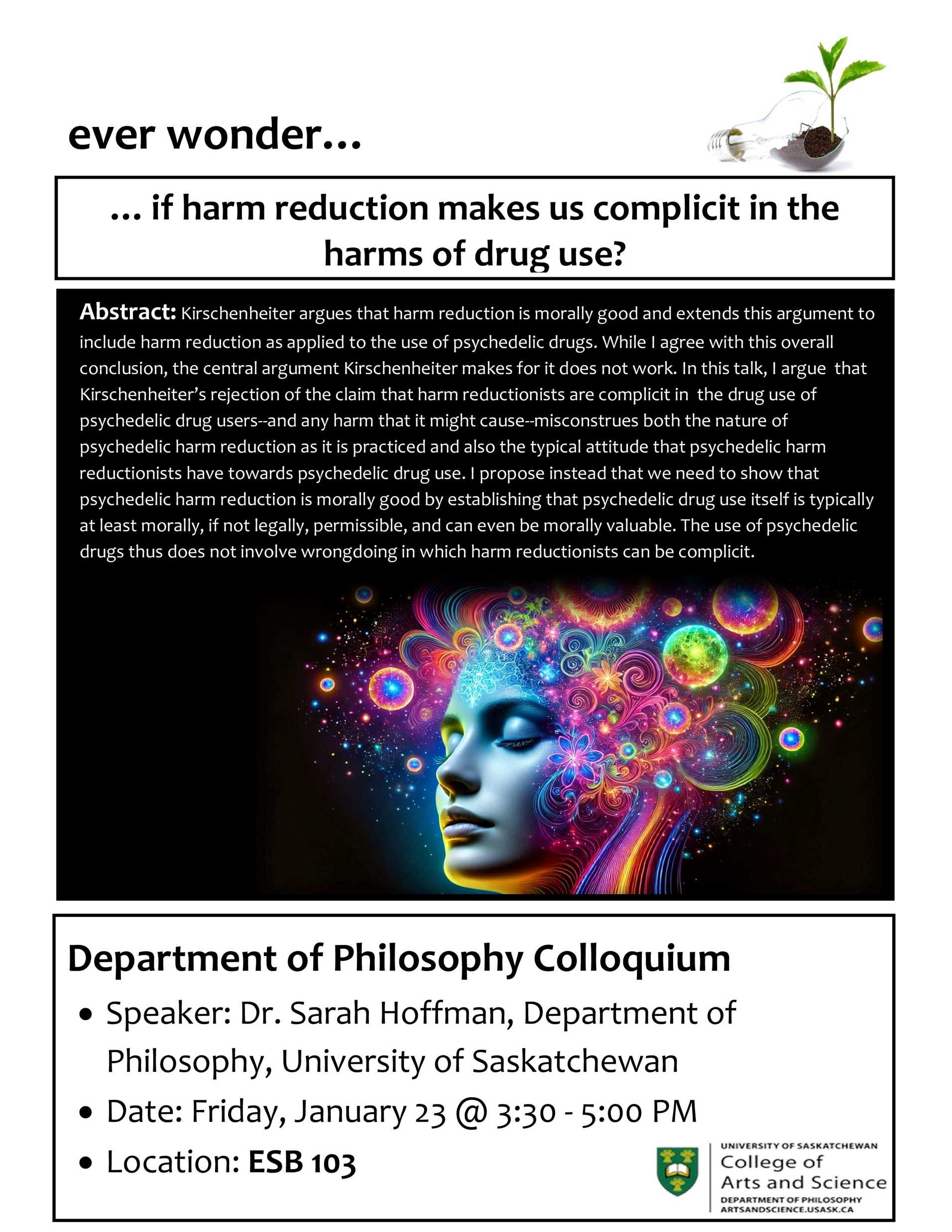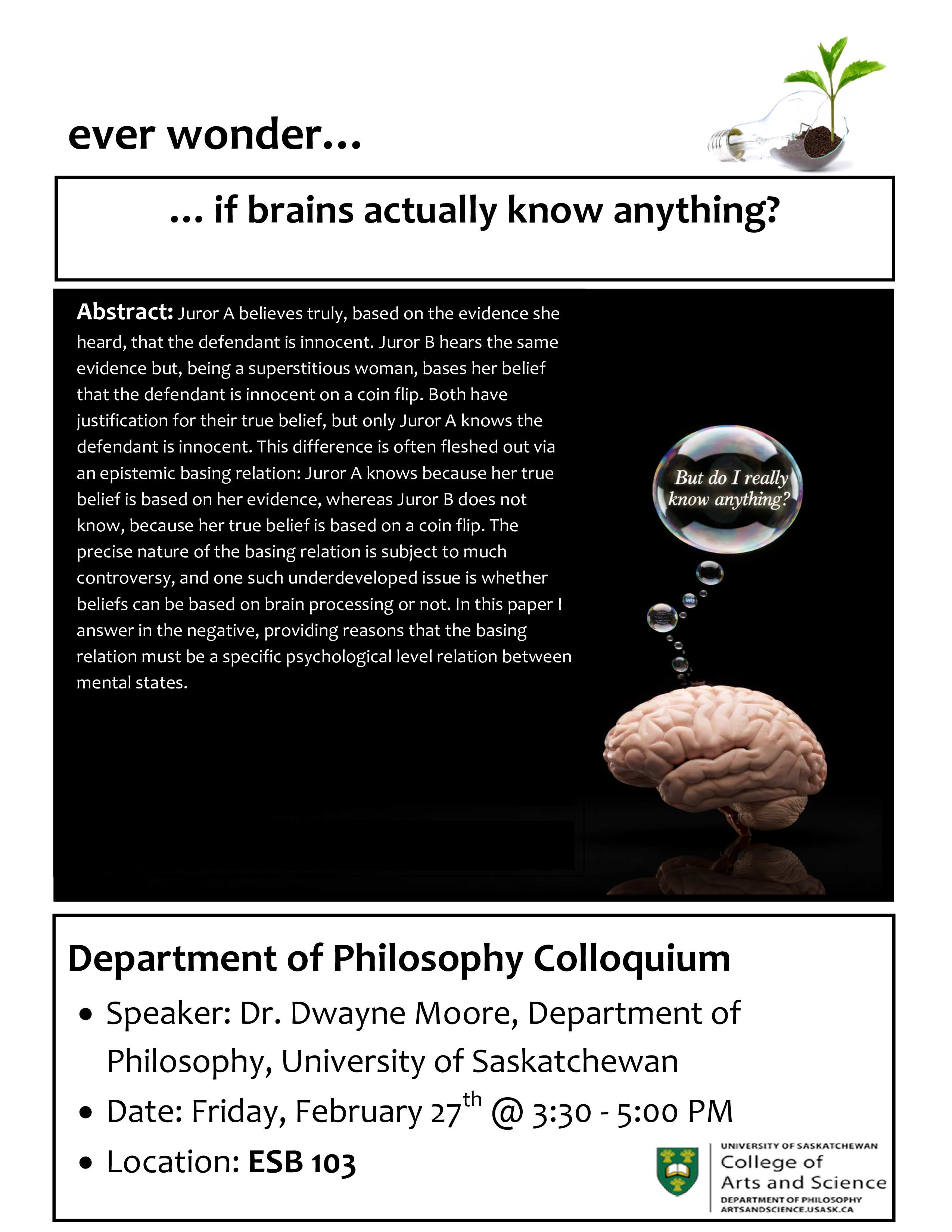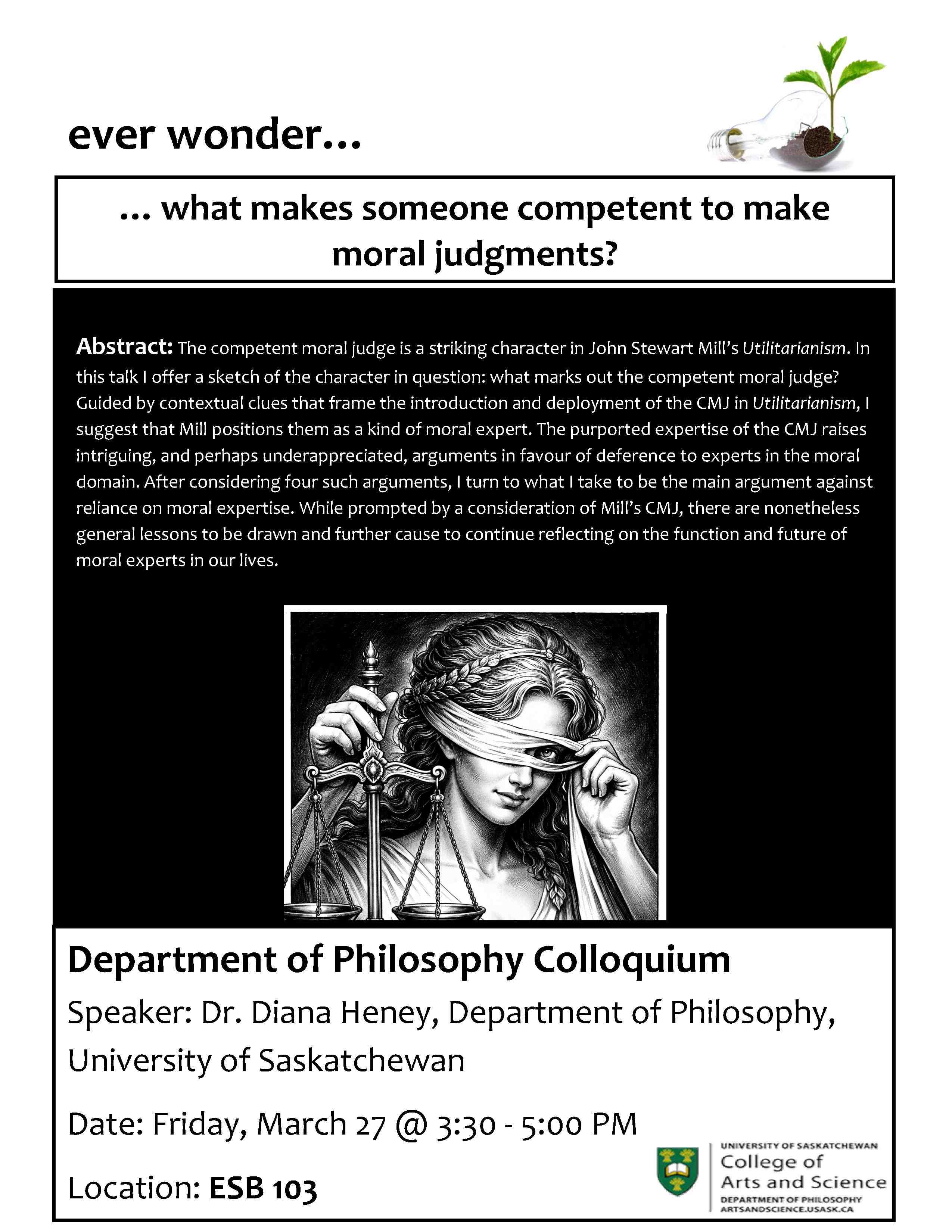Colloquium Series
2025-2026
Approximation and Our Intellectual History
Friday September 26, 3:30 pm
Dr. Nicolas Fillion
Department of Philosophy
Simon Fraser University
ESB 18
Moral Supervenience: The Phenomenon and its Analyses
Friday November 7, 3:30 pm
Dr. Brian Zamulinski
Department of Philosophy
ESB 12
What's Wrong with Being Judgemental?
Friday December 5, 3:30 pm
Dr. Emer O'Hagan
Department of Philosophy
ESB 12
Complicity in Psychedelic Harm Reduction
Friday January 23, 3:30 pm
Dr. Sarah Hoffman
Department of Philosophy
ESB 103

Do Brains Know Anything?
Friday February 27, 3:30 pm
Dr. Dwayne Moore
Department of Philosophy
ESB 103

The Idea of a Competent Moral Judge
Friday March 27, 3:30 pm
Dr. Diana Heney
Department of Philosophy
ESB 103

